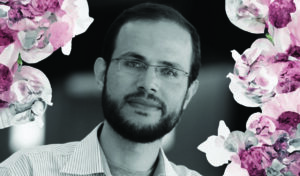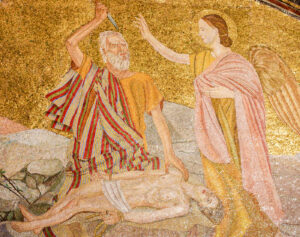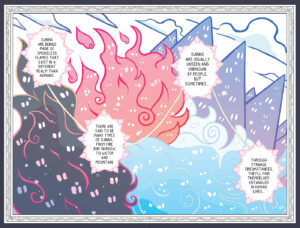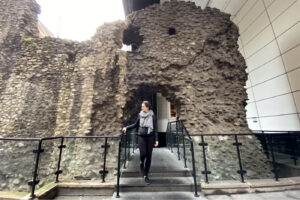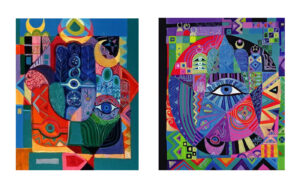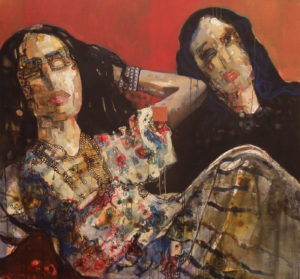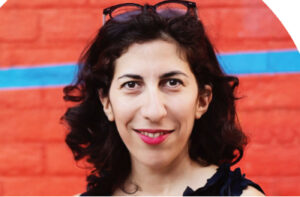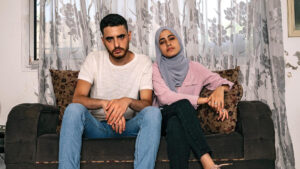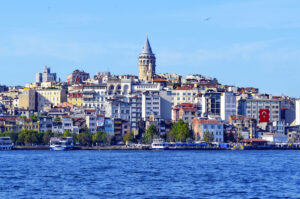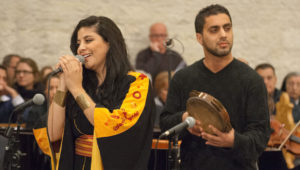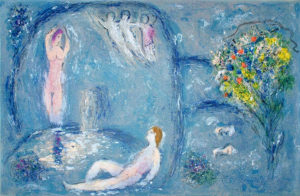This is the first instalment in Sudden Journeys, my monthly column about unexpected worlds, histories, and people, often encountered just around the corner. Perhaps curiosity and talking and writing and serial displacements, being an insider and outsider at once, and Palestinian, enables a certain openness, a tendency to wander into rabbit holes like Alice. In a taxi to Istanbul airport with my son Millal, then 13-years old, we struck up a conversation with our Kurdish driver who had worked as an office guard of Abu Jihad during an assassination attempt, and he had been wounded. From his story and the taxi we emerged breathless. “What are the chances of that?” my son marveled as we walked into the airport. “I do not even ask that question anymore,” I answered. We will always live Sudden Journeys.
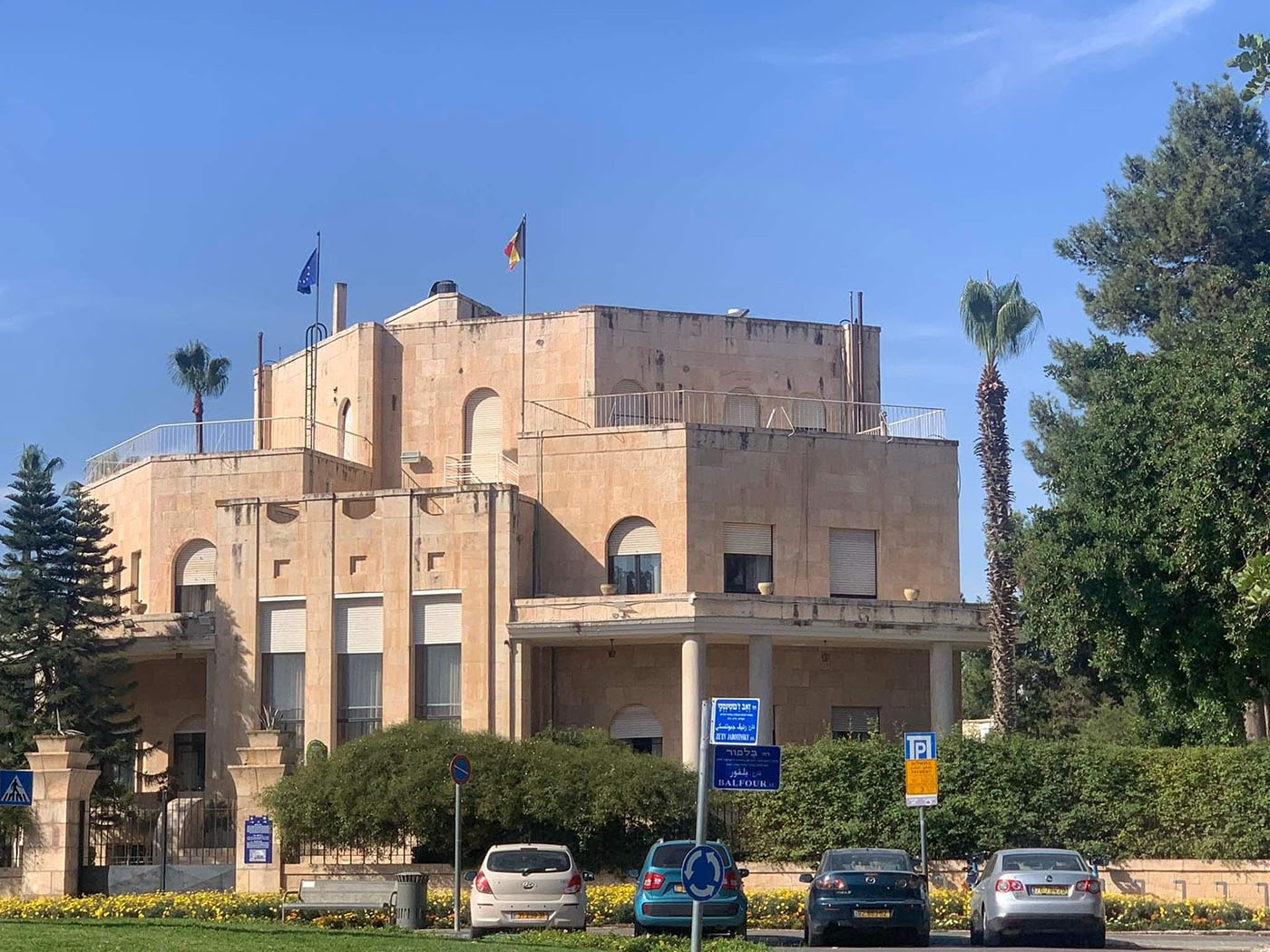
A month ago when I was in Lebanon, I could not find an antique store I visited years ago, located before just reaching the Byblos bank branch that lies across from Red Shoe on Hamra in Beirut. I walked up and down this stretch several times before I gave up, now expecting constant and disorienting transformations of the shops and people of Hamra. The last time I was in town, at the outset of the 2019 revolution, so many shops transformed to dried fruit and nut displays, with hills of candy-covered almonds and some gaudy orange, green, and red strips of sweets, all catering to khaliji or Gulf clientele. Now Hamra, like all of Beirut, seems less populated altogether. We hear other dialects, mainly people from Iraq, and if they do not make purchases, no one else can keep open the shops during this desperate economic fallout, explains a friend with a modest convenience store near the Commodore hotel. In Hamra these days, there are few familiar dialects, stores, or faces.
The antique store that I could not find was barely there when I lived and taught at university for seven years up until 2017 when I moved to France. It had been closed most of the time. I only once happened by and found it open, so I quickly descended the few steps needed to open the door. The store itself looked displaced, and it could have as easily been in a French city, were it not for a Moroccan star lamp in the vitrine—the only bazaar item in there. Otherwise, the collection inside was well-groomed in European taste, like the elderly lady within.
Her soft white hair was gathered in a low bun, her expression kind and pensive, but she looked fatigued. We greeted one another, and I moved closer to a small display to examine delicate objects from China and Turkey. Smiling faintly, she remarked that I had lighted onto the most precious of her treasures. We started a conversation, and I asked about her circumstances and work and she told me about her life. Her father, she explained, had disapproved of her passion, not only the antique dealer career that she launched when she was in her early 20s, but it was unseemly for a woman of her stature to have a career at all. And yet from time to time she saw him discreetly pass by her storefront to admire her vitrine. She informed me calmly that her children would soon close her store, and were I to happen by even next week she would certainly be gone. When she woke up in hospital one week before, she explained, her son Constantine told her that they nearly lost her. He now disapproves of her opening the shop, like her father before him, but for a different reason. Her demeanor and attitude struck me as so gentle for such a clearly determined, independent woman.
She returned, over and again, narrating in fragments and circling from a height, like a war pigeon, the family villa on Balfour Street in Jerusalem. She wanted to tell me something about the Israeli hold on Villa Salameh.
She looked at me, pausing thoughtfully for a long time, and I held her gaze. She asked me where I was from and I answered that I was Palestinian. I responded to her ensuing questions, telling her freely about myself. We had taken an instant liking to one another. She sat down in an antique red armchair and motioned for me to take a seat, and talked about her family and their Palestine, telling how they moved back and forth often, how the journey from Beirut to Jerusalem until the 1940s was an easy afternoon ride. She told me that her son Constantine was named after his legendary grandfather Constantine Salameh, a wealthy Lebanese entrepreneur who had built the magnificent Villa Salameh in the Talbiyeh neighborhood in Jerusalem in 1935, a small part of a consequential holding throughout Jerusalem and Jaffa and one of the biggest fortunes in Palestine. Madame Salameh, wife of Constantine’s son Charles, as I later worked out, talked to me for over two hours about her life. She returned, over and again, narrating in fragments and circling from a height, like a war pigeon, the family villa on Balfour Street in Jerusalem. Like the other fine homes in the Palestinian neighborhoods of Talbiyeh and Qatamoun, the Israelis dispossessed the Palestinian families that fled but were convinced they would soon return after the fighting calmed down. She wanted to tell me something about the Israeli hold on Villa Salameh.
I later read about Villa Salameh in more detail, and found out that the father Constantine and his family fled in 1948 with almost no belongings, and he had brilliantly arranged to lease the house to the Belgian consulate – whereas many of the other properties in Talbieh and Qatamoun were taken over by the Haganah militias in 1947 and 1948. I read about Constantine’s grandson, the son of Madame Salameh, who was also a businessman. I discovered photos of an affable-looking man who holds degrees from MIT and Stanford, and who is involved in social-impact development projects in Africa as well as renewable energy projects. I had heard of his father’s fateful meetings in Cyprus with the Israelis, who stole the Salameh property in Palestine…I would read in detail about the Israeli offer to buy the villa for small change on the condition that the Salameh family renounce all rights to their extensive property in Palestine.
Madame Salameh told me carefully, recounting in minute detail, how her husband met the Israelis in a Cyprus hotel, and was offered $700,000 dollars for their historic villa built by Marcel Favier (who also built the French consulate in Jerusalem). She looked away, raised her arm and dropped it to her lap in abandonment, glancing back at me briefly. We both then looked downwards and sat there in silent communion for some time. I stood up to take leave of this dear elderly woman. I cupped her hand in both of mine, then her forearm, smiling at her wistfully. I told her that she should rest now. She sat back in her chair.
It was a thoughtful and deliberate story she wished to transmit. I was grateful and troubled to hear it, and wondered if Charles Salameh actually accepted the Israeli payment. A recent Haaretz article recounts the story of ‘Villa Dolorosa’ and the relentlessness of David Sofar, the current Israeli holder, who seized Israel’s high court in an attempt to oust the Belgian consulate and terminate Constantine Salameh’s 99-year lease to them, causing diplomatic tensions between Israel and the Belgians.
I think about Charles Salameh and whether a business instinct so ingrained in mentality and method rendered him quite visionless, historically and socially. Could he have been capable of taking Israeli pennies in “compensation” for its historic theft, at that moment in Cyprus when he understood that all was lost, that he may as well clutch his fist around a small amount instead of nothing? And if so, was it really at that point in history his property to renounce or did it belong to all of us, the Palestinians? Charles’ aging father Constantine lived in a sumptuous villa in Cairo by then, and of course needed no Israeli handout either. Did the Salameh family even think through the tragic dimensions of signing off on this colossal Israeli theft? How taking this pittance would officiate Israeli crimes? Or are they those strange creatures that exist in tiny societies of wealth and power anywhere and nowhere? They may have become so, once driven from their homes and into exile. But Constantine Salameh’s family before 1948, Haaretz tells us, was very much rooted in their hometown Jerusalem, Palestine, and their circles included Palestinian Jewish friends.
But I mostly think of Madame Salameh, of her decision to dispose of what she clearly considered a personal and collective grief, in the envelope of her beloved boutique where we conversed. I feel she wanted to pass it on, and that she considered this story of loss also belonging to me, and to us all.



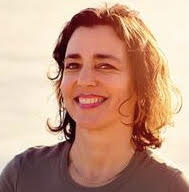






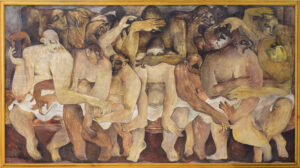




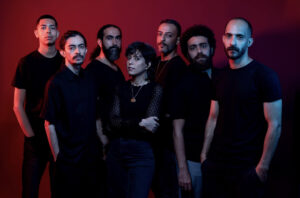



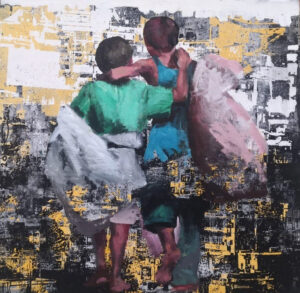








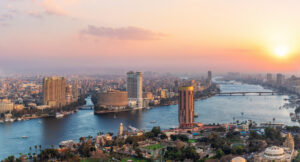


![Ali Cherri’s show at Marseille’s [mac] Is Watching You](https://themarkaz.org/wp-content/uploads/2025/09/Ali-Cherri-22Les-Veilleurs22-at-the-mac-Musee-dart-contemporain-de-Marseille-photo-Gregoire-Edouard-Ville-de-Marseille-300x200.jpg)
































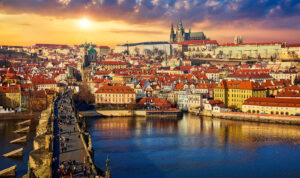












































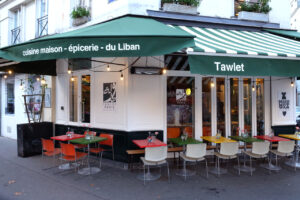
![Fady Joudah’s <em>[…]</em> Dares Us to Listen to Palestinian Words—and Silences](https://themarkaz.org/wp-content/uploads/2024/03/SAMAH-SHIHADI-DAIR-AL-QASSI-charcoal-on-paper-100x60-cm-2023-courtesy-Tabari-Artspace-300x180.jpg)
















